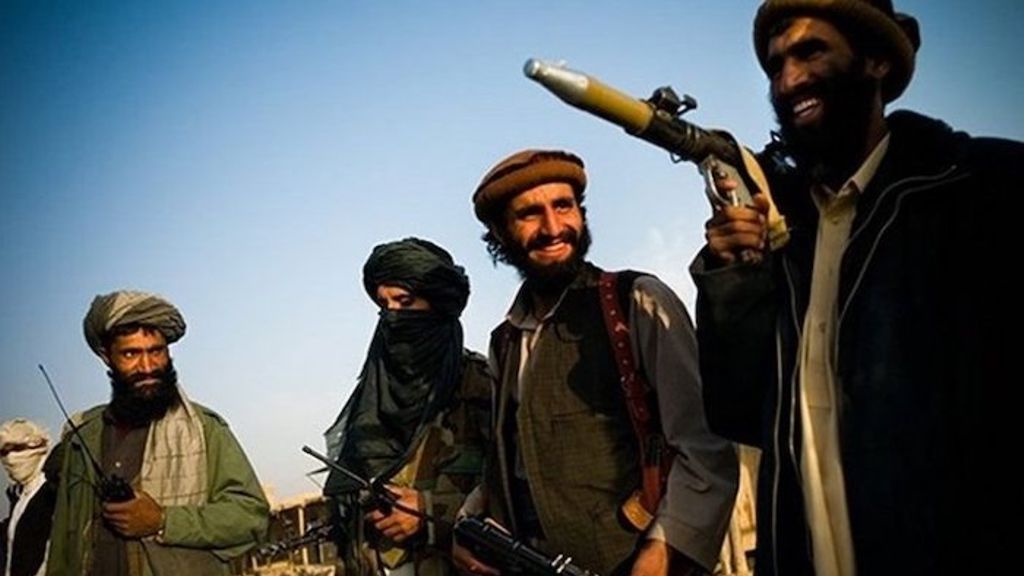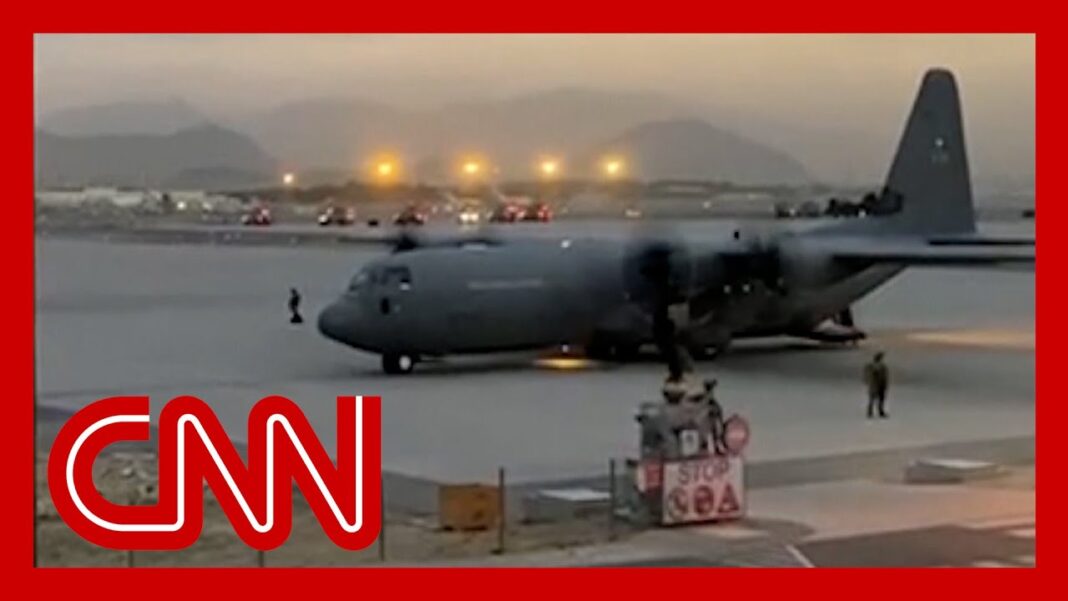American soldiers would often show up at villages in rural areas of Afghanistan to win the ‘hearts and minds’ of the locals only to learn that they not only don’t understand what America is, but aren’t even aware that they’re living in a country called Afghanistan.
And don’t especially care.
Afghanistan is an imaginary country. Much like Iraq and Syria. These places have history, but the idea of a country is an external concept embraced by local elites who want centralized authority, but resisted by locals in rural areas.
The real Afghanistan is a collection of different ethnic groups and Islamic denominations, where tribe matters far more than nationality.
We “won” Afghanistan by backing an anti-Taliban tribal coalition. The strategy, much like the Sunni Awakening in Iraq, paid off because we provided air and military support to a viable tribal opposition.
The clean and effective victory was then ruined by trying to “modernize” and “democratize” Afghanistan.
We plowed billions into building a modern Afghan army. Just like the effort to build a modern Iraqi army, it was doomed.
The Afghans couldn’t be trusted to fight alongside us or even alongside each other. The only kind of viable military force in a tribal society consists of people who trust each other fighting together using traditional raiding tactics.
The Afghan army collapsed in the face of the Taliban for the same reason that the Iraqi army collapsed in the face of ISIS.
We were trying to get people who don’t think like us or live like us to fight like us.
That was never going to work.
A modern Afghanistan was worse than a client state. It was a Potemkin village of State Department and USAID workers funding female rock bands and American officers trying to get Afghans to act like they’re in a modern western army. All that led to was Afghans feeling insulted and trying to kill Americans.
Afghanistan was a strange dream that Americans had. The Afghans never shared that dream. The moment we announced that we were leaving, the soldiers we had dressed up, abandoned ship. Every Afghan we had spent a fortune paying to participate in our production of a modern Afghanistan fled. The show was over, the paying crowd was leaving, and the Taliban smoothly took over everything.
Everyone except us understood that was going to happen.
The old Brits or Frenchmen who had lived through this same phenomenon in the fifties could have told us about it, but we wouldn’t have listened.
And we still don’t understand.
A tribal opposition to the Taliban will likely emerge. And we will likely fund them. That opposition may succeed in dividing the country. The warlords in the Taliban coalition and the opposition coalition will move back and forth as they did during our part of the Afghanistan war.
A tribal opposition to the Taliban will likely emerge. And we will likely fund them. That opposition may succeed in dividing the country. The warlords in the Taliban coalition and the opposition coalition will move back and forth as they did during our part of the Afghanistan war.
It’s become fashionable to call Afghanistan an “endless war”. But it’s not our endless war. It’s the endless war of the tribes, clans and families that make up much of the Muslim world. We didn’t begin the “endless war” in Afghanistan, Iraq, Syria or anywhere else.
It was foolish of us to believe that we could end it.
The difficult realities are those no one wants to hear.
There was never a solution to Afghanistan. Nation-building was never going to work And the odds are that after we’ve withdrawn, Islamic terrorists are going to set up shop and begin the cycle all over again.
Americans think in terms of solutions. Or at least we used to.
But cultural problems can’t be solved. The War On Poverty failed for the same reasons that the War on Drugs failed. And for the same reason that our efforts in Iraq and Afghanistan ultimately failed.
The Founding Fathers understood that we could solve our own problems. We couldn’t solve those of Europe. We still can’t.
But the flip side of the reality is that isolation only gets us so far in a world in which terrorists can hijack planes and fly them into buildings.
Or get their hands on nuclear weapons.
More than ever we think in binary and polar terms. All either one thing or another. Reality doesn’t work that way.
We need to avoid being drawn into more nation-building folly, but there will come times when we’ll need to militarily intervene to protect our interests.
Those interventions should be short and decisive. They should set a clear goal of destroying the enemy without then being drawn into a futile program of stabilizing and constructing a new system that we approve of on the rubble of the enemy.
That’s foolish and doomed.
The temptation to stabilize a source of instability is geopolitically rational, but doomed by culture. The nation-builders were right that failing to stabilize Iraq or Afghanistan meant that we would get dragged back in. It already happened in Iraq, the odds of it happening at some point in Afghanistan are pretty good.
But that means we’ll have to learn to live with an Israeli model of occasional brief interventions with low casualties rather than extended engagements. We are done with trying to replicate WW2 or Vietnam all over again. Or at least we should be.
This model doesn’t really fix anything. It isn’t any kind of solution. And as terrorists get closer to accessing more dangerous weapons, building their own drones and rockets, obtaining chemical, biological or nuclear materials through the same pipeline from North Korea to Pakistan to Iran, there may be a hell of a price to pay.
There were better decisions that we could have and should have made before and after September 11.
We didn’t make them. And that means we are where we are. Our enemies are getting more dangerous just as we’re getting weaker.
Everyone needs to adapt to a new reality horizon and work with the situation as it is. But that probably won’t happen. Instead the debate will go back to being between the same old failed intervention model or the equally failed model of insisting that if we ignore the problem, it’ll go away.
It won’t.
The basic crisis is simple enough.
Islamic terrorist insurgencies are expanding. Demographics mean that there will increasingly be more of them than there are of us and they will seek, as the Nazis did, Lebensraum or Breathing Room, through migration or immigration, colonization or conquest. Either way there will be enemies without and within whose organization and capabilities will continue to increase even as ours decay.
A sane country would have responded to 9/11 by cutting off their sources of funding and weapons with brief and decisive campaigns targeting oil-rich states and the North Korea-Pakistan-Iran weapons pipeline.
Instead we spent our time chasing the terrorists and trying to rebuild their societies.
Wars that could have been won became unwinnable exercises in suicidal sociology. That choice may mark one of the turning points of our decline. And it came from a political culture that was unable to deal with real problems, only with ideological abstractions, run by men who thought entirely in terms of the ideas that they had absorbed in the past, and with no room left for questioning those ideas.
The only real lesson of Afghanistan is that we need to step out of the boxes and echo chambers and start seeing the world as it is, and evaluating problems and solutions the way we would tackle a broken chair or a toilet, not in ideological, but in practical terms.
If we can’t learn that lesson, then we can always debate the sex of all the angels who can dance on the heads of a pin while the Turks besiege our walls. History offers ample lessons for societies that can’t learn from the past, the present, or the future.
We ought to learn them before the barbarians aren’t just in Kabul, but on our own borders.









